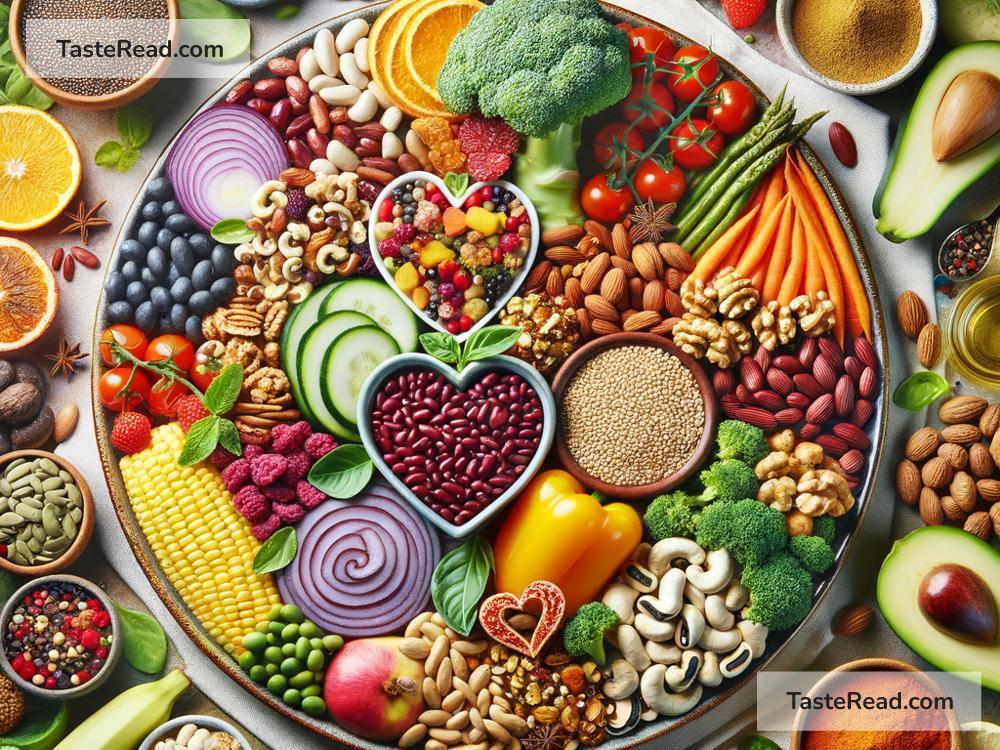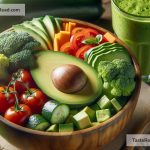Title: How a Vegan Diet Can Aid in Reducing High Cholesterol
You’ve probably heard the whispers or maybe loud declarations about the magic of a vegan diet and its numerous health benefits. Among these, one that stands quite tall is its capability to help lower high cholesterol. If you’re scratching your head wondering how that works, you’re not alone. Let’s dive into the simple hows and whys of how embracing a vegan diet can be your ally in the battle against high cholesterol.
Understanding Cholesterol: The Basics
First things first, let’s break down what cholesterol actually is. Imagine cholesterol as tiny fat molecules floating in your blood. While we often vilify cholesterol, our bodies actually need a certain amount of it to function properly. It helps in producing hormones, vitamin D, and aids in the digestion process. However, the trouble begins when there’s too much cholesterol in your blood, mainly when we talk about LDL (low-density lipoprotein) cholesterol, often dubbed as “bad” cholesterol. High levels of LDL can lead to plaque buildup in your arteries, making it tough for your heart to pump blood through your body, leading to heart disease and stroke.
Enter the Vegan Diet
This is where a vegan diet, rich in fruits, vegetables, and whole grains, comes into the spotlight. A vegan diet excludes all animal products including meat, dairy, and eggs. You might be wondering, how does ditching animal products help lower your cholesterol? Here’s the scoop:
-
Zero Dietary Cholesterol: Plant-based foods come with zero dietary cholesterol. Yes, you read that right. Cholesterol is found in animal products, so by cutting these out, you’re significantly lowering your intake of dietary cholesterol. This is a straightforward step towards keeping those cholesterol levels in check.
-
Fiber is Your Friend: Plants are packed with fiber, which animal products lack. Fiber plays a crucial role in lowering cholesterol. It binds with cholesterol in the digestive system and helps to remove it from your body. Think of it as your digestive system’s broom, sweeping away the bad cholesterol.
-
Healthy Fats Over Harmful Ones: A vegan diet promotes the intake of healthier fats found in nuts, seeds, and avocados, over saturated and trans fats found in animal products. These healthy fats can help decrease LDL cholesterol and raise HDL (high-density lipoprotein) or “good” cholesterol.
-
Powerful Plant Sterols and Stanols: These naturally occurring substances in plants help block the absorption of cholesterol in your body. They’re like your body’s bouncers, keeping the bad cholesterol at bay. Foods like whole grains, fruits, nuts, and seeds are rich in sterols and stanols.
Making the Shift: Practical Tips
Shifting to a vegan diet might seem like a daunting mountain to climb, but it’s really about taking one step at a time. Here are some simple tips to help you make the transition:
- Start slow: Try introducing one vegan meal a day, and gradually increase as you feel comfortable.
- Get creative: Explore recipes and cuisines. You’ll be surprised at the variety and flavors vegan cooking offers.
- Read labels: Some processed vegan foods can be high in sodium and sugar. Go for whole, minimally processed foods as much as possible.
- Plan your meals: To ensure you’re getting a good balance of nutrients, plan your meals. Make sure you’re incorporating a variety of fruits, vegetables, whole grains, nuts, and seeds.
What About Protein and Other Nutrients?
A common concern when switching to a vegan diet is getting enough protein and other essential nutrients. The good news is, with a bit of planning, a vegan diet can provide all the nutrients your body needs. Beans, lentils, tofu, tempeh, and quinoa are excellent sources of protein. For other nutrients like Vitamin B12, Iron, and Calcium, fortified foods and supplements can help meet your needs.
The Bottom Line
Reducing your cholesterol levels doesn’t have to be about what you can’t eat. A vegan diet offers a delicious and nutritious route to not only bring down high cholesterol but also to boost your overall health. Remember, it’s always a good idea to consult with a healthcare provider before making significant changes to your diet, especially if you have existing health conditions. Embracing a vegan lifestyle could just be the key to unlocking a healthier, happier you. Cheers to your heart health!


